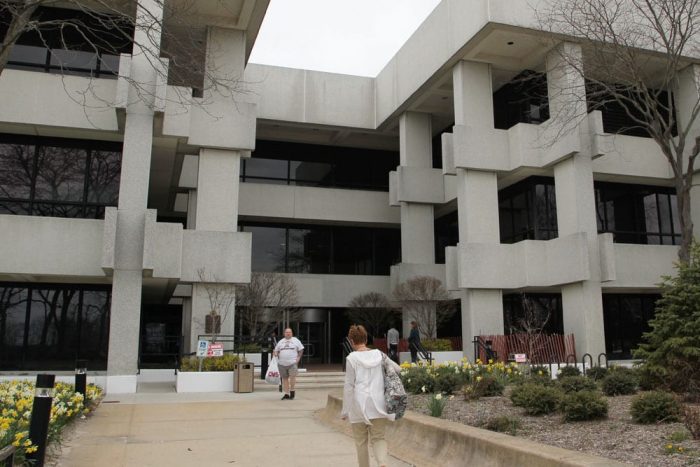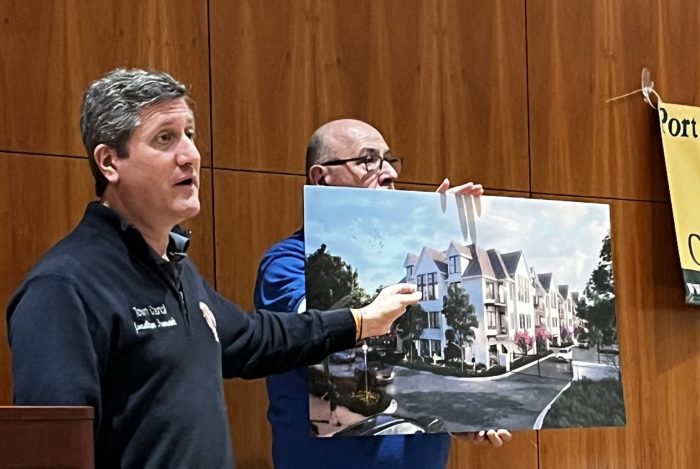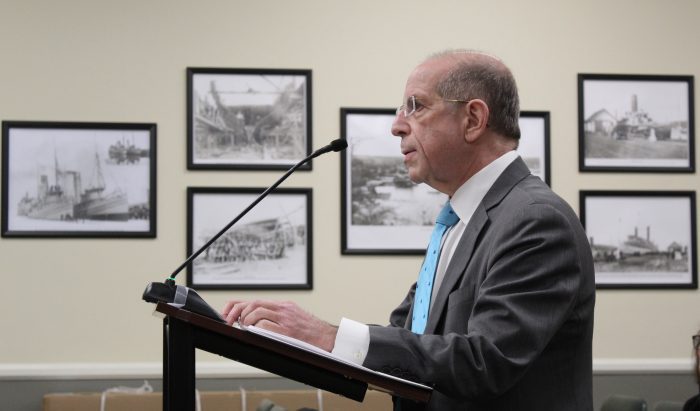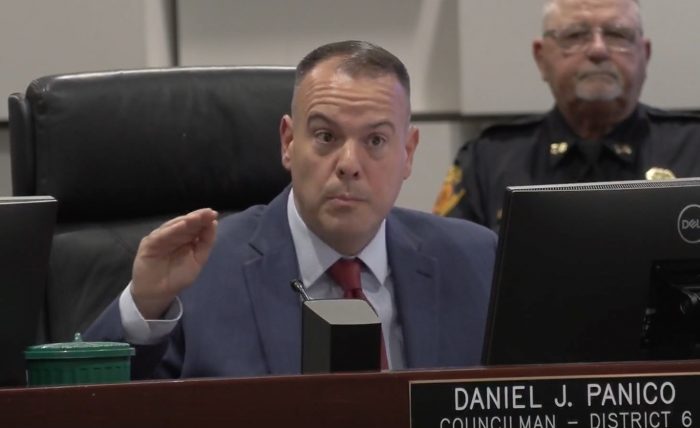
By Lynn Hallarman
Concerns were raised by newly-appointed village treasurer Stephen Gaffga about the bookkeeping practices that track the village’s capital project fund, prompting a call for a full accounting of the fund’s financial records going back at least seven years.
Gaffga was recently the treasurer for the Village of Greenport. He was hired this past summer by Port Jefferson Village, replacing Denise Mordente who served as treasurer for the previous administration.
During the Nov. 20 meeting of the Port Jefferson Village Board of Trustees, Gaffga described the capital fund’s bookkeeping as having a “severe information gap” in the fund’s ledger. Standard financial procedures “were not followed as best practice,” according to Gaffga.
“I came into Port Jefferson in September, and I saw a negative balance with the capital fund,” the treasurer said. “I tried to figure out how that came to be.”
Gaffga explained at the meeting that capital projects were approved and money was spent, but all these expenses were recorded as a “running tally on the ledger.” This accounting method makes it seem like there is a negative balance for all these projects.
“That’s not the case — we borrowed money, got grant funding, transferred money from the general fund, but the trail is very difficult to follow,” he said.
Gaffga recommended the board hire an outside specialized CPA firm, PKF O’Connor Davies of Hauppauge, to receive assistance in analyzing the record keeping of the capital fund going back in time. As stated at the trustees meeting, the cost of the lookback should not exceed $4,500 per year analyzed. The goal of the analysis is to uncover the financial history of each capital project and “establish a clean slate,” Gaffga said.
“It is entirely possible that everything is OK dollarwise, and it is just a mess on the books,” he told TBR News Media.
Former village Mayor Margot Garant, objected to Gaffga’s characterization of the records. “We did a lot in 14 years, and we used our money very carefully,” she said in an interview, adding, “The documents in place are pretty easy to follow. I don’t know what their issue is.”
The New York State Office of the State Comptroller requires municipalities to undergo an annual audit of financial records. According to the 2022 audit done by the independent accounting firm Cullen & Danowski of Port Jefferson Station, the village had areas for improvement.
Firstly, the village neglected to properly inventory its capital “hard” assets, according to Chris Reino, who represented the auditor at the August trustees business meeting.
The village has no running list of assets like trucks, buildings, computer equipment and furniture, for example, since “at least 2014,” Reino said.
As a consequence, if something goes missing or “there is a catastrophe, it will be hard [for the village] to make a claim to an insurance company to replace it,” Mayor Lauren Sheprow noted.
Secondly, the report indicated that the “village did not maintain adequate accounting records” of the capital project fund.
Cullen & Danowski did not respond to email and phone requests for comment for this story.
Capital project fund
The capital project fund financed a range of projects over time for the village, such as restoring the East Beach bluff, repaving walkways at Harborfront Park, creating the Barnum Street parking lot, building bathrooms at Rocketship Park, digitizing records and more.
The trail of money for a project should be easy to follow by a citizen, according to the state Comptroller’s Office. Bookkeeping for the capital fund should tell the complete story of how taxpayer dollars are appropriated and spent for each project to prevent overspending or leaving financial holes in the funding for essential village improvements.
“I want this board to be educated about this process, so we are all aware of where the money’s coming from and how it’s being spent,” the mayor said at the November board meeting.
Financial transparency
At the August board meeting, Sheprow complained that members of the previous board “never saw the 2022 audit.”
“I don’t recall specifically, but I know I had a discussion with [the trustees] and the treasurer that [the audit report] was in, and I believe that was January,” Garant told TBR News Media.
While financial audits should be posted, along with other yearly financial records on the village website after the Board of Trustees reviews them according to OSC best practice, the 2022 audit submitted to the village administration in January this year was not posted to the village website until this past week, shortly after TBR News Media requested to review the audit report (see portjeff.com/fiscalyear2022auditdocuments).
Mordente did not respond to requests for comment for this story about the village’s 2022 auditing process.
Moving forward, Sheprow said she wants to remedy this perceived gap in transparency.
Gaffga said at the November board meeting the village wants to establish a clean slate so there are no “skeletons bookkeeping-wise that could hold the village back.”










